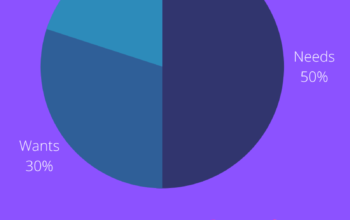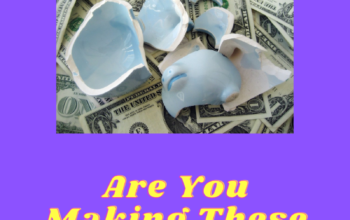Is an 8-month Emergency Fund the new Golden Standard? {Bye-bye 3-6 month emergency fund}
Hello readers. I’m writing this towards the end of December 2020. I’ve been very lucky to still have my job, none of my immediate family have gotten sick from COVID-19, and I have the privilege of having an emergency fund saved to cover my living experiences if I should ever lose my job.
For this entire year, I’ve been consuming even more media based on budgeting, how to plan for retirement, investing, and emergency funds. Before this year, I’d always heard that the golden standard for an emergency fund is 3-6 months of living expenses. Dave Ramsey says that, along with countless other finance experts. But, is it really enough? Personal finance is of course very ‘personal’. The amount of money that you should have saved up really depends on the job field that you are in if you are single or have a family, and how quickly you think that you can find a new job. I wanted to look at some of the reasons why having an 8-month emergency fund might be the new golden standard to replace the previously touted 3-6 month emergency fund.
If You are a Freelancer, Entrepreneur or Business Owner
If you don’t have a steady W2 job where you can count on receiving a steady paycheck every two weeks, then it’s probably a good sign that you should save more than a 6-month emergency fund. I’ve been a freelancer before and juggled multiple clients at one time. It always worked out that one of my clients contributed the most to my income than the others. If I were to lose that one ‘whale’ client, I would immediately be under water. When I was in this situation I was fortunate enough to keep my expenses very, very low. I was a traveling digital nomad with no car, no American medical insurance, and was living in countries with a low cost of living (Thailand, Malaysia, Indonesia, Turkey). I had the benefit of keeping my living expenses from $400-$1,000 each month while still living a fulfilling life. By default, I was able to save the majority of money that I made and only needed to work part time.
For entrepreneurs or business owners, I can only imagine how difficult it can be to predict income each quarter, get a consistent amount of customers, and be able to navigate the e-commerce world that we are currently in. All around me in the San Francisco Bay Area, I hear about restaurants, gyms, nail salons, and other businesses that have had to close their doors forever. There’s no way they could have foreseen a global pandemic happening that would shatter everything that they had worked for.
If You are a Couple or Have Dependants
I’m not saying that if you are single, that you don’t need an emergency fund larger that can cover at least three months of your expenses. That decision is completely up to you. However, when you are a couple or have dependents that need you in order to live, that’s much more responsibility that doesn’t just disappear because you were laid off or lost your job.
For couples, you may have just one partner working and the other staying at home. Or, you may even have both of you working and contributing money to the household. What if one of you, or worse yet, both of you lose your jobs? If you both save some money for a rainy day, there will be less pressure on your relationship during an already very stressful time.
If you have children or family members that depend on you for your daily needs, you can’t just become a spartan minimalist until you get a new job. That’s much easier to do when you are single and your choices only affect you, but you can’t do that when there are children or elderly parents looking to you for their food, shelter, and general wellbeing.
It May Take You 6-8 Months to Find a New Job
This is the unspoken truth that no one wants to recognize. It’s been made painfully clear right now during the COVID-19 pandemic where tens of thousands of people have lost their jobs in March or April 2020 and those jobs have disappeared. What happens when a huge group of people is looking for jobs at the same time? It can take 6 months or longer to find a new job and get lost within a sea of resumes.
In a normal, bustling job market it can be very easy to get a new job within three months. It might even take a new week! But during a down market or a pandemic, you can’t count on that to happen. It’s just not realistic. It’s better to have a bigger emergency fund than you need than to have a smaller emergency fund that keeps you caught between a rock and a hard place.
In conclusion…
Everyone has learned a lot from this rocky year. For myself, one of the lessons is to make sure that I have a larger emergency fund so that I can not have anxiety and worry about how I will survive if I were to be laid off. I know so many people who have been laid off, fired, or are simply afraid to work due to their increased risk of getting COVID-19. If and when you are able to, try to prepare for the next rocky time that will inevitably come again in the future.
Have you increased your emergency fund, or plan on doing so in the future? If so, feel free to share your comments below.



